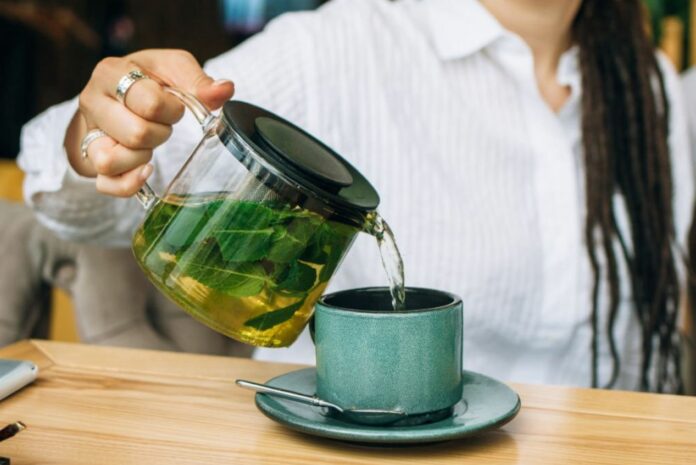From infusions to supplements and even chocolates, products promise to aid weight loss, improve sleep, and enhance the immune system through the presence of certain plants or natural compounds. The question is, do they actually work?
Are Medicinal Plants Really the Cure-All They Claim to Be? From propolis to echinacea and other herbs, it’s hard to miss the stands of herbal remedies offering solutions to every health issue under the sun.
Ask for something to ease knee pain, and before you know it, the seller has you convinced that their magical herbs can fix all your physical afflictions. With no regulation or oversight, it’s easy to leave with more than you bargained for.
Vegetables contain compounds that, when used in controlled doses, have verifiable biological effects. In fact, many medications are derived from these compounds, extracted from plants and synthesized in the lab. However, these meticulously calculated formulas are vastly different from the haphazard uses of plants that contain similar compounds, but in unknown concentrations, depending on various factors such as the stress the plant endured, growth conditions, soil quality, water supply, harvesting time, and more.
Compounds boasting apparent health benefits can be found in almost any product nowadays. Herbal teas, in particular, have become increasingly sophisticated, touting little-known ingredients and claims about their properties, ranging from the subtle ‘relaxing’ to the more aggressive “fat burner.” An array of so-called magical foods is marketed as a panacea for various complex health problems.
Here’s what scientific research has to say about the purported properties of some of these so-called magical foods.
Echinacea is often touted as the solution to avoiding colds throughout the winter season. Some products claim that this herb can enhance natural defenses, among other things. However, a review by the esteemed scientific database Cochrane concluded that there is no evidence to support its effectiveness in treating colds, and any positive effects are not clinically relevant. We express regret to those who purchased this tea with high hopes of it being a cure-all.
Propolis, a substance created by bees to construct their hives, is often purported to ‘help the upper respiratory tract’ or ‘aid during the cold season,’ which is often interpreted as ‘boosting the immune system.’ Medline suggests that propolis may be useful in certain cases, such as treating inflammation and mouth sores caused by cancer treatment drugs, when consumed orally or in rinses.
Horsetail is often referred to as the king of diuretic products and is also claimed to help maintain healthy hair and nails. However, Medline notes that there is insufficient reliable information to determine its effectiveness in this regard.
Green tea is often touted as the infallible ally for weight loss, as well as being claimed to improve circulation. However, the National Center for Complementary and Integrative Health, which is a part of the United States National Institute of Health, states that despite many studies being conducted on green tea and its extracts, there are no definitive conclusions as to whether it is useful for the multiple objectives it claims to achieve.
Guarana is promoted as another tool for weight control, fat metabolism activation, immunity improvement, hunger suppression, and fatigue elimination. However, caffeine’s effect could be responsible for the latter. Medline reports that while there is interest in using guarana for multiple purposes, there is insufficient reliable information to determine its usefulness.
Ginkgo biloba is claimed to aid in maintaining mental well-being, memory, and cognitive function. However, according to the National Center for Complementary and Integrative Health, there is no definitive evidence to support its use for any health condition.
Moreover, plant extracts are openly sold as pills, tablets, ampules, powder, and similar form factors. Even though they claim to be good for your health, they are not medicines. Instead, they are dietary supplements, which are governed by food laws. This is controversial because, unlike supplements, drugs have to improve, correct, or change the way the body works. In one country, a product might be called a dietary supplement and in another, it might be called a medicine.
These days, medicinal herbs may be found in things you least expect them to be, like a chocolate bar with 25% sugar. They invent a fiction that resolves the eternal consumer paradox: we are obsessed with ultra-processed, ultra-sugary goods, yet we are aware that they are bad for our health. Voila! Add a healthy element, and it cancels out the harmful effects of everything else.
Health claims include phrases like “helps your defenses” or “contributes to normal psychological function.” These assertions are based on the existence of discrete nutrients or components, such as fiber, vitamins, and minerals. If a meal has a particular level of vitamin B6, it may be said that it boosts your defenses, improves your psychological function, and lowers exhaustion and fatigue.
However, there are several significant exceptions to the rules. Due to the difficulties of verifying these purported characteristics, dietary supplements and meals are riddled with thousands of similar claims, such as “iron-enriched cakes contribute to cognitive development in children.”
According to Science Direct research, evaluating the advantages of several nutrients is quite straightforward. In reality, many of them provide no noticeable advantages and are just required for physiological functions. When it comes to compounds from plants, it is much harder to show that they have clear health effects.
How can we protect ourselves against being duped by such promises? Learn the rules. Leave an item out of the basket if the label focuses your attention to a specific ingredient and makes claims that seem unreal.
It manipulates your eating preferences via magical thinking. Foods that are good for you, like fruits, vegetables, beans, and nuts, don’t make big promises.
Image Credit: Getty
